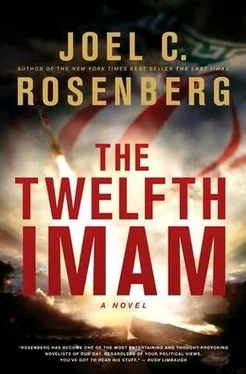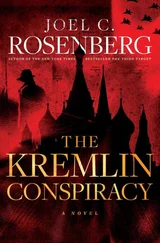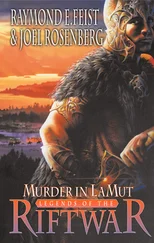And with that, He was gone.
Suddenly, all was as it had been before-dark and windy and cold. Yet not all was the same. In that moment, Najjar Malik realized that he was not the same man he had been when he woke up that morning. Mysteriously, miraculously, something inside him had changed. How he would explain it to Sheyda or to his mother-in-law, he had no idea. But he felt a peace emanating from so deep within him it made no logical sense.
Najjar got back in his car, turned on the engine, and carefully headed down the mountain in the snow and ice. Only then did he realize that his fever was gone.
His mobile phone rang. It was Sheyda. She was up to feed the baby. She was asking him if he was okay, asking if he could stop by her parents’ apartment to pick up some things for her mother. Najjar was so happy to hear Sheyda’s voice, he would have said yes to almost anything she asked him.
But then a thought occurred to him. He wondered if Dr. Saddaji’s laptop was still in his home office and if it contained any of the information he was hoping to find. What’s more, he wondered if the authorities had been to his father-in-law’s home yet.
Najjar hit the accelerator and prayed for the first time in his life to a nail-scarred Messiah.
Najjar struck oil.
Sitting on the desk in his father-in-law’s home office was Saddaji’s Sony VAIO laptop. Right next to it was a one-hundred-gigabyte external hard drive. Beside that was a stack of DVD-ROMs that Dr. Saddaji apparently used to back up his computer.
Najjar quickly gathered his mother-in-law’s toothbrush, makeup, and the other assorted toiletries she had requested, along with all of her husband’s electronics, and headed for his car. He didn’t dare sift through it all now, for he fully expected plant security and intelligence officials to descend on the apartment at any moment.
Just before he turned the ignition, Najjar remembered what the police had told him about how Dr. Saddaji had died. Then he recalled the words of the mysterious caller: You’re next. He was suddenly frightened again. Was he being followed? by his own security forces? by the Israelis? or even the Americans? Had they just planted a bomb in his car? He began trembling again.
But then he heard a voice and recognized it immediately.
“Do not fear them. There is nothing covered up that will not be revealed, nothing hidden that will not be known. What I tell you in the darkness, speak in the light; and what you hear whispered in your ear, proclaim upon the housetops.”
Najjar wasn’t sure whether he had heard an audible voice or whether the Lord had simply spoken to him in his spirit. But once again a peace he couldn’t explain immediately came over him, and Najjar was no longer afraid. He turned the ignition without hesitation. The car started without a problem.
As he drove, Najjar again heard the voice of the Lord. “Now you must leave this city. The Lord will rescue you. He will redeem you from the grip of your enemies.”
Racing toward home, Najjar was troubled by this message. Leave this city? Why? To where? He had been a follower of Jesus for less than an hour, but he knew his Shepherd’s voice, and he was determined to follow Him wherever He led. Clearly Jesus wanted him to take his family and leave Hamadan. But how in the world would he explain all this to Sheyda and Farah? He had no idea, but Najjar clung passionately to the command of Jesus. He was not to succumb to fear. He was to live by faith in the One who had conquered the grave and who held the keys to death and hades in His own hands. It will be okay, he told himself. Somehow it will be okay.
It was nearly four in the morning when Najjar finally got home. He decided he would take his family to Tehran-as good a destination as any, he supposed. They could find a hotel there easily enough. He knew that the distance from Hamadan to Tehran was about three hundred and fifty kilometers-a five-hour drive. He had driven it a thousand times. They could be there for breakfast if they left quickly. That was the easy part. The hard part would be persuading the women to go.
Najjar entered the apartment as quietly as he could. He expected the lights to be off, but they were on. He expected his wife and mother-in-law to be sound asleep, but to his shock, they were lying prostrate on the floor of the living room.
Upon hearing the door open, Sheyda jumped up, ran to him, and hugged him as she never had before. Her eyes were red. Her makeup was running. She had obviously been crying, but that was to be expected. What wasn’t expected were the words she spoke next.
“He appeared to us, too, Najjar,” she whispered in his ear. “We’re packed and ready to go. I’ll get the baby. Meet us in the car.”

It was 7 a.m., and Esfahani cursed Mina under his breath.
As his hired driver snaked the Mercedes through the streets of Hamadan, crowded with shopkeepers beginning their day, Esfahani wondered why in the world she had made these travel arrangements. Didn’t she ever think about the difficulty of heading to the airport in the thick of morning traffic? Didn’t he pay her to anticipate these details and make his life as comfortable as possible?
If she’d been smart and booked a later flight, he could have slept longer and waited until the roads cleared. Instead, the driver had picked him up at his family home southeast of Bu-Ali Sina University at 6:30 and was now winding along the edges of Lona Park and onto the ring road heading north and then east toward the airport. He wished he’d paid attention to the itinerary yesterday and demanded she change the ticket. Foolish woman! Perhaps it was time to fire her.
The previous day had been consumed with his large extended family and the business of Dr. Saddaji’s funeral. Saddaji was the brother-in-law of his friend and boss, Daryush Rashidi, and their families had known each other for generations. And given the man’s prominence in the world of science and energy, it was a fairly elaborate funeral, despite the fact that there was no body to speak of to bury. Esfahani went to the funeral in deference to Rashidi, but now he was anxious to return to Tehran and his work. He would not stay for hafteh , the seventh-day visitation of the grave. He wasn’t that close to the man, tragic though his death was.
The car came to a stop as it approached the northern edge of the city, and Esfahani looked out the window to see why.
“There’s a problem ahead, sir,” the driver explained. “Maybe an accident. It will take me just a few minutes to get to the turnoff, but then we’ll take an alternate route. Please forgive me, sir; I heard no warning about this delay.”
Ten minutes later they turned onto a side road and headed toward the center of the city. Esfahani hoped the driver knew what he was doing.
As if reading his mind, the man explained, “I’m going to the inner ring road and then will try to circle around to the north. The traffic should ease up, sir. I beg your forgiveness.”
“I don’t care how you get there,” Esfahani snapped. “I just don’t want to miss this flight.” He wasn’t fully awake, and the last thing he needed was a detailed description of their route.
He looked outside and sighed heavily. He was proud of his birthplace, the most ancient of Iran’s cities and a cradle of poetry, philosophy, and science. But right now, he wished he were asleep. It had been a busy few days, and time spent with his family was never peaceful. He longed for the solitude of his apartment in Tehran, far away from the domestic drama of his mother and her many siblings.
Читать дальше













